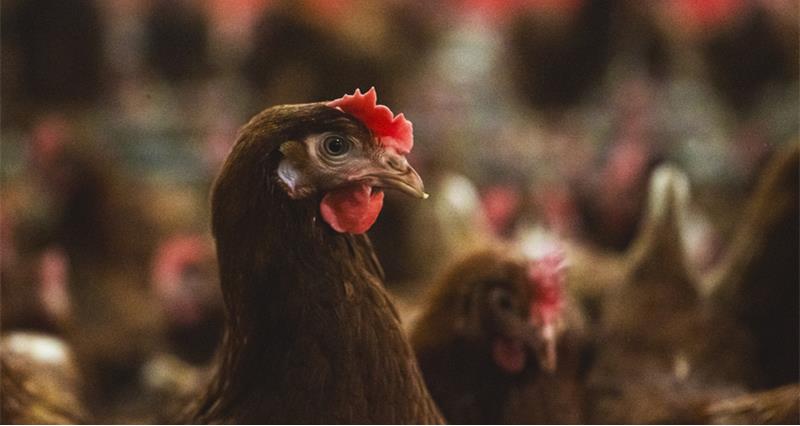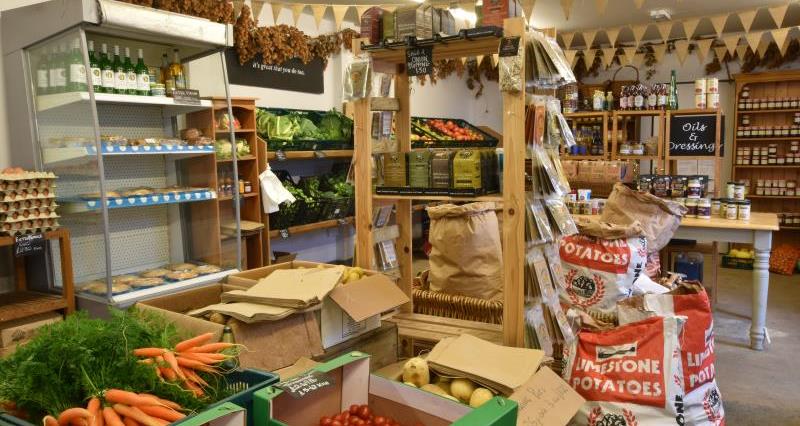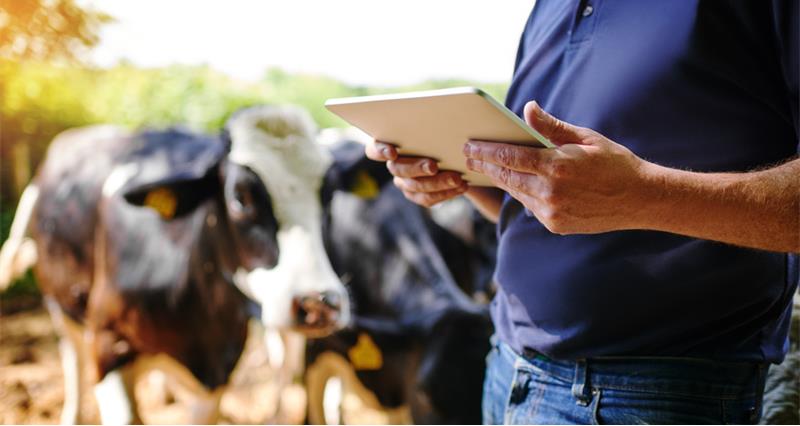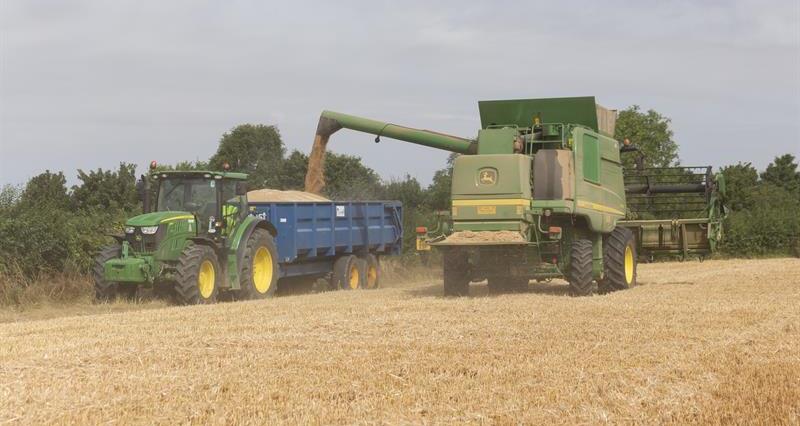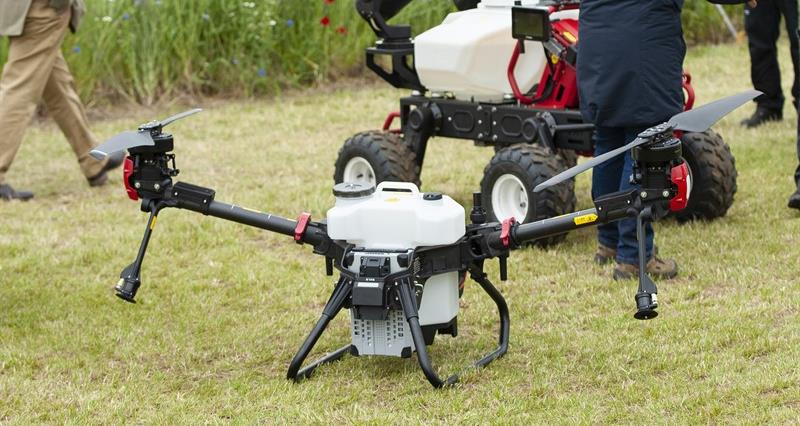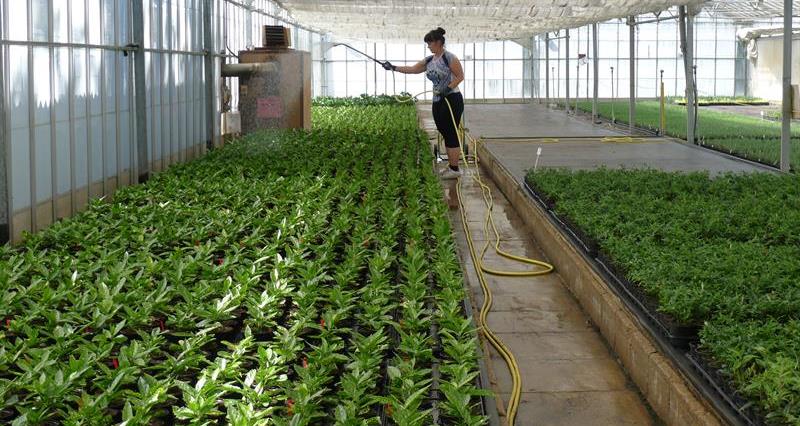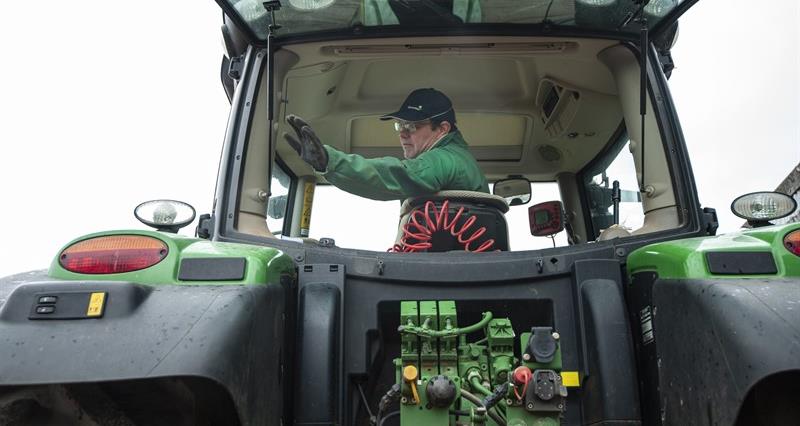Grant information
This grant is available for housing for laying hens and pullets.
Applicants were able to apply for funding to replace or upgrade/refurbish existing laying hen or pullet housing; this is referred to as a ‘comprehensive’ project, which does have a number of mandatory requirements associated with it, such as the requirement to have a veranda as part of the project.
Or the fund can be used to add a veranda onto existing laying hen or pullet housing, referred to as a ‘veranda-only’ project. Both approaches aim to provide animal health and welfare benefits.
The online checker was the first stage in the application process for the grant; applicants were advised to submit their proposals by 18 September 2024. For those who have applied for a comprehensive project, if it scores highly enough against the funding priorities, then you will be invited to submit a full application.
Full details of what is required are available at: GOV.UK | Laying Hen Housing for Health and Welfare grant round 1 (invited applicants).
A full application must be submitted before 11.59pm on 28 April 2026.
Veranda-only projects
For those who applied for the veranda-only project, you will be being contacted on a first come, first served basis, as long as your application met the scheme criteria. The submission deadline for a full application for the veranda-only projects is also 28 April 2026.
Full details of what is required for a veranda-only project can be found at: GOV.UK | How to apply for a veranda-only project.
If an applicant has applied for both a comprehensive and a veranda-only project, then only one will be able to proceed. If the comprehensive project is successful then it will be chosen to make a full application, instead of the veranda-only project.
For those not invited to submit a full application for a comprehensive project, the RPA will be able to progress their veranda-only project application.
Aims of the successfully funded project will:
- improve laying hen and pullet health and welfare
- increase environmental sustainability
- introduce innovation
If your project meets all these priorities, it’s more likely to be accepted according to the RPA guidance. We will publish more information on this as it becomes available.
Funding and success criteria
If you meet all of the eligibility criteria set out by the RPA, you may be invited to make a full application. The success of an application will depend on the score of the project achieves (comprehensive projects only) and the number and value of applications the RPA receive (comprehensive and veranda-only projects).
The grant for comprehensive projects is competitive, so your application will be scored against the aforementioned funding priorities.
The grant for veranda-only projects is on a first-come first-serve basis.
There is a budget of £22m allocated to this grant.
High level details
Eligibility birds – The RPA states that the term ‘laying hen’ refers to a female domestic chicken over 17 weeks old kept for table egg production. The term ‘pullet’ refers to a female domestic chicken less than 17 weeks old being reared for table egg production.
Who is eligible – A producer can apply for a grant if they are an existing commercial egg producer or pullet rearer. They must be a registered keeper of 1,000 or more birds. These must be on site when you fill in the online checker or have been within the last six months. Any buildings you build or upgrade with money from the grant must be located in England.
Land occupation – A producer must either own the land they are building on or have a tenancy agreement for the land until five years after the project is complete. There is further information set out in the guidance where a tenancy does not extend that long.
Eligible buildings – The rules state that housing must provide a high level of biosecurity, excellent ambient environment, and maximise the space available by ensuring full and safe accessibility to all birds. For comprehensive projects the housing should include, among other things, mechanical ventilation and high welfare multi-tier systems and a roof suitable for solar photovoltaic (PV) panels. Also, that any laying hen housing should include a veranda, where outside space is permitted.
Funding above the legal minimum – All projects must meet the legal requirements for the keeping of laying hens. This grant offers funding to help farmers deliver higher standards for health and welfare and should not be used to help meet only the minimum standards.
Not about flock expansion - This grant scheme cannot be used to directly fund flock expansion by increasing stocking capacity. Because of this, comprehensive projects will receive a lower intervention rate for aviary system costs (based on starting flock size).
If you are replacing a colony cage system, you may wish to maintain your egg production capacity by using a combination of projects. For example, both a refurbishment and a new-build project. The RPA will fund up to 40% of the eligible costs up to the maximum grant amount if the final stocking capacity of the project does not exceed that of the colony system. If at project completion, the project exceeds the starting colony capacity, then the amount of grant funding available will be worked out pro rata. You will need to fill in one application per project. A single maximum grant amount will cover both projects.
You can keep the old building if you are replacing existing laying hen or pullet housing with a new building. But you must not use the old building for poultry housing or egg production after you complete the project.
Scheme guidance – This explains the required specifications for projects funded under the grant. You should read this guidance carefully before you apply to make sure your project is eligible. To be eligible for funding, your project must meet all specifications relevant to the project type. These specifications were co-designed with industry and are designed to support one or more of these grant priority themes:
- laying hen welfare
- biosecurity
- heat mitigation
- enviro-sustainability
Visit: GOV.UK | Laying Hen Housing for Health and Welfare grant round 1
Application approaches
The information released on 14 May is the first step in the rollout of this grant fund offer. The second step is the two stage application process.
Stage 1 – is expected to open in late June 2024, an online checker and where an initial application being made. The online checker will tell you if are eligible to apply for a grant for your project and how well your project fits the funding priorities. Business, project, planning and cost estimate information will be required at this stage.
Stage 2 – following a review of the initial applications, the RPA began inviting successful applicants to submit their full applications from 23 January onwards (this is a change from the original published information inviting eligible applicants for veranda-only projects to make a full application from July 2024).
The guidance sets out the information that will be needed for the full application.
If the full application is successful (following the checks set out in the guidance), the RPA will issue a Grant Funding Agreement that will set out what the offer is, this will need to be accepted. Decisions are expected within 60 working days of receipt of the full application being received by the RPA.
It is critical that the full application covers the same project that you used in your step 1 - the online application. The RPA know that some minor project details may change after you complete the online checker, such as changes to project costs as they are finalised. However, the main details of your project should not be significantly different to your online application.
A producer can only apply for one of these types of projects: ‘comprehensive’ or ‘veranda-only’. You can make applications for multiple projects up to the maximum grant amount. If you want to apply for funding for more than one building, you will need to make a separate application for each.
Comprehensive projects scoring criteria – The guidance sets out additional features that would help your project to better meet the grant funding priorities, such as animal welfare, biosecurity, enviro-sustainability, and innovation. The RPA / Defra will score the inclusion of these additional features at the online checker stage. If they receive applications for more funding than is available, RPA / Defra start they are more likely to invite you to make a full application if your eligible project is high scoring. There are no scoring criteria for veranda-only projects.
Veranda-only projects - Waiting list – If the value of applications received reaches the budget before the checker closing date, any further eligible applicants will be offered an option to join a waiting list for entry to Stage 2 of the application process. Waiting list applicants will be informed by email if they are invited for entry to Stage 2 of the application process. The RPA will aim to contact eligible applicants within 4 weeks of the checker closing date.
Planning permission and environmental permits – You are likely to need planning permission for your grant funded project. You may also need an environmental permit variation if your site has more than 40,000 birds or will increase from under 40,000 birds to 40,000 or more birds because of the project. Make clear on any applications that the project is part of the Defra Laying Hen Housing for Health and Welfare grant. You will need to have the necessary permissions and permits in place before making a full application.
Project funding available
Grants can cover up to a maximum rate of 40% of the eligible costs of a project. Applicants will need to be able to fund the remaining project costs from eligible sources, again the guidance sets out what these are. It is key to remember that the grant is paid in arrears of eligible spending.
• For Comprehensive projects, the minimum grant you can apply for is £15,000 (40% of £37,500) and the maximum grant is £500,000 per applicant business.
• For Veranda-only projects, the minimum grant you can apply for is £5,000 (40% of £12,500). The maximum grant is £100,000 per applicant business.
Roof Top Solar Funding – This is only eligible for comprehensive projects and the minimum grant amounts above does not include costs associated with rooftop solar photovoltaic (PV) systems. If you’re including rooftop solar PV systems as part of your project, the RPA will only fund the cost and installation of these based on a power requirement of 5 kilowatts per 1,000 birds within the housing, up to 25% of the eligible costs. Installing a solar PV system on your funded building will contribute to the grant funding priority of enhancing environmental sustainability. You do not need to include a rooftop solar PV system on your funded building. However, the building still needs to be able to be capable of accommodating rooftop solar photovoltaic (PV) systems if it is not part of the project.
Claiming the grant funding – You can claim for payment after the work being claimed for is finished and has been paid for. You can make a maximum of 3 claims over the course of the project.
Timing of activity and eligibility of items -You must not start work, commit to any costs (including paying deposits), enter into any legal contracts, or place an order until your project start date. This date will be in your Grant Funding Agreement.
If you incur project costs before that date, you may make your application ineligible, as the project could be considered as already started.
If you buy an item for the project using lease purchase or hire purchase, you need to own it outright before you can claim any grant money towards it. If you do not own it outright, you will not be able to include these costs in your claim. This means that you need to pay all the instalments and show that the title has passed to you before you claim the grant.
Evaluation and learning – This grant will gather information on projects receiving public investment. This will help the RPA and Defra improve national data and future funding rounds. This will involve asking successful applicants to take part in evaluation and learning activities.
Contacting the RPA
The RPA team can assist if you’re not sure if you are eligible to apply, or if you are not able to access the online checker. There contact details are as follows:
Email: FTF@rpa.gov.uk
Telephone: 0300 0200 301 and follow options for the Farming Transformation Fund.
Reading the guidance
Key now is to read the guidance about the grant, to understand it and decide if it is right for you and your business. It can be found at: GOV.UK | Laying Hen Housing for Health and Welfare grant round 1
NFU Energy Help
Environmental permitting: NFU Energy can assist with obtaining the necessary environmental permissions, which are required as part of the grant application, including varying intensive farming poultry permits and obtaining standalone permits. The team also offers ongoing compliance management and assistance to ensure your project complies with the relevant legal regulations.
Rooftop solar installation: If you’re considering solar PV panels as part of your project, NFU Energy's renewable energy solutions service offers access to leading renewable energy installers, finance and insurance. The team can support you at every stage of your renewables journey, from securing all the necessary quotes required, to installer introductions, as well as providing ongoing assistance to ensure everything happens smoothly.
